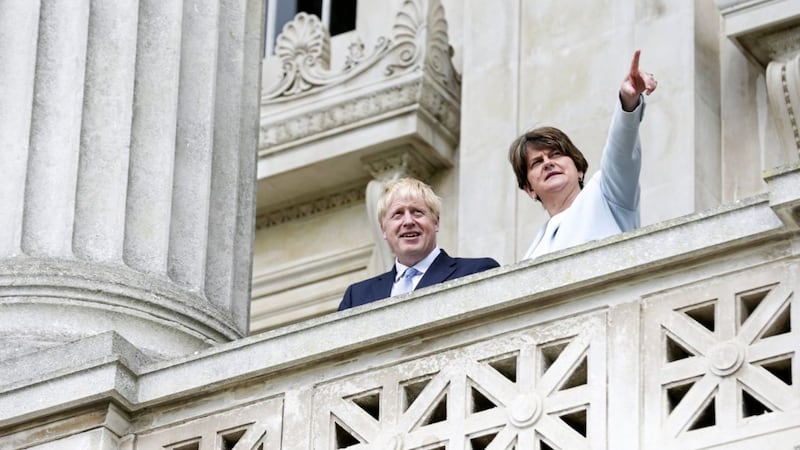I genuinely don't understand why any other party is surprised by the DUP's relationship with the Conservatives.
Had Alliance's surge come earlier and they had managed to win a few seats, I am pretty sure they would have had a very close relationship with the Lib-Dems and a joint voting policy on Brexit.
If the SDLP had held on to their three seats it's almost certain they would have worked very closely with Labour - maybe even some sort of reasonably formal arrangement had Labour formed a government.
If Sinn Féin had abandoned their abstentionist policy at Westminster in 2017 I'm pretty sure they would have reached some sort of arrangement with Labour, whether or not Corbyn had been Prime Minister.
When the parliamentary arithmetic is tight and the government needs votes anywhere it can get them, then the smaller parties play the cards they have to their best advantage.
Let's face it, Sinn Féin was hoping that it would have become a kingmaker at the last Dáil election and it would have had a very clear set of demands in return for supporting the government.
When Theresa May called the unexpected general election in 2017 the DUP would have been worried. Unionists had just lost their overall majority in the Assembly and Sinn Féin had run them to within 1,200 votes.
Although it never entered the public domain there was serious internal concern about Arlene Foster's leadership and the handling of what was still the early stages of the RHI crisis. There were fears that at least a couple of seats were vulnerable and little expectation of picking up South Belfast.
But everything played out in the DUP's favour: an impressive vote tally and 10 seats. It took the pressure off Foster; allowed the DUP to relax a little; and more than made up for the poor Assembly result.
Crucially, May's plan to return with a healthy majority had backfired (nobody knew what she meant by 'Brexit Means Brexit'), leaving her short of a stable overall majority.
She turned to the DUP. And of course they accepted. What else were they going to do when offered the opportunity to be seen as a key political force at national level?
The party which, only a few weeks earlier, was being mocked for being on the losing side of history in Northern Ireland, was now kingmaker.
And I find it hard to believe that any other party from Northern Ireland with enough MPs to make an offer to them worthwhile would have refused the offer had they supported the government's policy.
The DUP is not neutral on the Union. Never has been and never will be. The Conservative Party is not neutral on the Union, either: so again, no reason why they shouldn't reach a confidence and supply arrangement.
UK governments are supposed to be 'impartial' when it comes to the operation of the Good Friday Agreement; meaning that they shouldn't be seen to do anything which favours one side over the other.
In fairness to the DUP and May, the original confidence and supply deal was primarily about directing £1 billion of extra funding to a variety of Northern Ireland projects rather than a variety of DUP pet projects.
Matters turned out to be much more complicated when it came to the backstop.
Its supporters said that it protected the integrity of the Good Friday Agreement, while the DUP and the other unionist parties claimed (with some justification) that it threatened the constitutional integrity of the United Kingdom by holding out the prospect that at some point NI would be in a different relationship with the EU than the rest of the UK.
The DUP's argument, supported by Boris Johnson and others, was that the integrity of the UK took priority. The present problem would have arisen even if the DUP didn't have a deal with the Conservatives.
At some point, very soon, Boris Johnson will have to make a decision about whether the protection of NI's position within the UK is more important than a no-deal Brexit; more important than the Good Friday Agreement; or more important than potential losses to Farage and the Brexit Party.
At this stage, though, even his DUP partners don't know the answer to that question.








